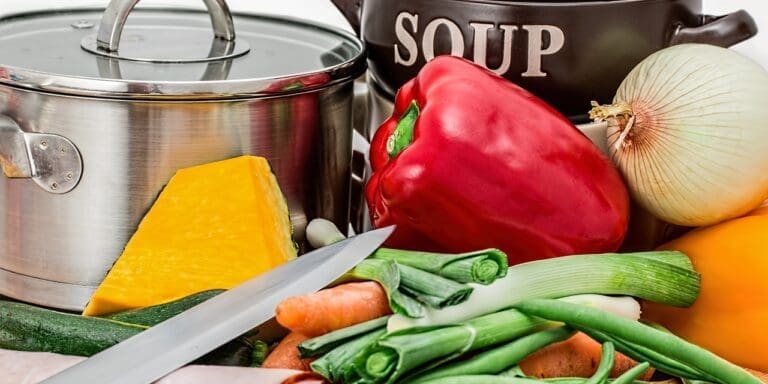The saying “a calorie is a calorie” is both true and misleading. Let’s start with the basics. From a pure energy balance perspective, a calorie is a measure of energy. According to the definition, a calorie is a unit of energy equivalent to the heat energy needed to raise the temperature of 1 gram of water by 1 °C (now often defined as equal to 4.1868 joules). Obviously, this information does absolutely nothing to help us understand what this actual means.
You are constantly being told from the health gurus out there, maybe YouTube, X, or any other social media that weight gain or loss depends on calories in vs. calories out. If you consume more calories than you burn, you gain weight; if you burn more than you consume, you lose weight. But common sense will tell you that there is a big difference between 1000 calories of beef or whole foods and 1000 calories of candy and potato chips. Technically, you could eat in a deficit either one and still lose weight but there are adverse side effects. Not all calories affect the body the same way due to differences in metabolism, hormones, satiety, and energy expenditure. Here’s how different types of food can impact weight differently.
There are macronutrient differences between proteins, carbohydrates and fats.
Protein has a high thermic effect (20–30% of its calories are burned through digestion), promotes satiety, and helps maintain muscle mass, which boosts metabolism.
Carbohydrates will cause varying insulin responses. Highly refined carbs (e.g., white bread, sugars, and starches) spike blood sugar and insulin, leading to fat storage and increased hunger. Carbohydrates are proven to trigger endorphins which could lead to emotional eating. Since most carbohydrates in the market are highly processed foods, they are less nutrient dense. This creates the hunger.
Fats are calorie-dense but provide satiety. Animal fats (saturated fats) have been demonized in the past, claiming consuming them will increase cholesterol levels leading to heart disease. Current studies have disproven this. There are several health benefits since they are rich in essential fatty acids. These are the support of cell membrane integrity, hormone production, improve heart health, and reduce inflammation. Omega-3 fatty acids (found in eggs, fish and grass-fed beef) support brain function and improve cardiovascular health. Butter and Lard are also high in fat-soluble vitamins such as Vitamin A which promotes eye health and immune function. Fatty fish, egg yolks and butter contain Vitamin D which is crucial for bone health, overall moods and immunity. Vitamin K2 can be found in dairy products, beef, pork and chicken.
When it comes to food quality and satiety, whole, nutrient-dense foods (vegetables and meats) keep you full longer and regulate hunger hormones. Ultra-Processed foods, such as potato chips, snacks and sugary drinks are engineered to be hyper-palatable, leading to overeating.
Believe it or not, food can have effects on our hormones. Depending upon what we eat will affect the body differently. The glycemic index (GI) is a ranking system that measures how quickly carbohydrates in food are broken down and absorbed into the bloodstream, causing a rise in blood sugar levels. The scale ranges from 0 to 100, with pure glucose having a GI of 100. Foods are classified as low, medium, or high glycemic foods; the lower the GI, the less impact the food has on blood sugar levels. This index is particularly useful for managing blood sugar levels, especially for individuals with type 2 diabetes. Every time we consume food, the insulin in the body will spike. Now this spike may be minimal, or it could be a very big spike. Since carbohydrates are converted into glucose (sugar) in the body and glucose is quickly converted to energy. This occurs within 1-2 hours after eating. The body gets a burst of energy but with every high, there is a low. Think about the tiredness you feel after eating lunch. Certain hormones like ghrelin (hunger) and leptin (fullness) are hormones that are regulated by the quality of foods that we eat.
With the amount of carbohydrates and ultra-processed foods that the average person consumes and snacks throughout the day, week, month and even years, produces an overabundance of insulin spikes. This will lead to insulin resistance of the cells which most researchers now believe is the leading cause of Type-2 diabetes.
The glycemic index is not the only factor that affects our health but the types of foods we consume can have a major impact. Conventionally raised animals can contain antibiotics, hormones and pesticide residuals, depending upon where they are allowed to graze. Most of the toxins are stored in fat.
Different foods can affect our gut bacteria, which play a role in metabolism and fat storage. Processed foods can disrupt gut health. Some increase energy expenditure. For example, protein and spicy foods slightly boost metabolism. While low-calorie processed foods (like diet sodas) may not contribute energy but can still impact cravings and insulin response.
While calories matter, food quality, macronutrient composition, and metabolic effects play a huge role in weight regulation. Eating 2,000 calories of whole foods vs. 2,000 calories of junk food leads to very different outcomes in terms of body composition, hunger, and metabolic health.
Now this is where I want to pivot. I will first state that I am not a doctor or a medical professional. I have my certification in personal training and nutrition. The information provided is for general knowledge and educational purposes only and should not be considered medical advice. Always consult with a qualified healthcare provider before making any changes to your diet, lifestyle, or health regimen.
The pivot I want to take is what I hear and see from other fitness professionals and nutritionists. The recommended daily allowance is 2,000 calories a day. A more detailed list shows for adults 21 years old and older should consume anywhere between 1,600 and 3,000 calories. Women need about 1,600 to 2,400 calories each day and men need 2,000 to 3,000 calories a day based on age and activity level. Now just using common sense, we can realize that men in general hold more muscle than women. The important factor is that calorie intake recommendations will vary based on age, sex and activity level.
I believe that the majority of people, especially the ones struggling with obesity, concern themselves more with getting enough to eat and meeting the 2,000 calories daily recommendation. They look to supplements and vitamins to make up for the deficits in their bad eating choices. Of course, this is reenforced by the bombardment of the supplement and vitamins advertisements that we constantly see on television commercials and YouTube ads. My belief is we should focus on the quality and amounts that we eat, let our bodies tell us when we are hungry based on hunger, not on time. So many times, I hear from other people that they have to eat breakfast and lunch. If you feel sick or lightheaded if you don’t eat, you should probably come to the understanding that you have a carb addiction.
Once again, this is my belief, is that if your day consist of getting up, getting dressed, getting in your car to drive to work, riding the elevator up, sitting in an office, then driving home only to plant yourself in front of the television, maybe you don’t need to eat three times a day. Even going for a 30-minute walk around the neighbor will do wonder in your overall health.
I currently live in a three floor house and I have two Siberian huskies that are outdoor dogs that I bring inside their dog run area during the night (I live in the mountains with a lot of wild animals including coyotes, bobcats and bears), I walk a lot of steps, not to mention I have an elliptical and a home gym. I have been doing about 30 minutes on the elliptical a day. And yet, I eat only one meal a day.
Let’s add age into this… I am going to be 57 in May. This works for me. I am trying to stick to mostly a carnivore diet such as steak, bacon, eggs, shrimp and fish. I don’t usually have a hunger craving until about 4pm. I used to eat a lot of processed foods like pizza, potato chips and pre-made meals until I realized the multitude of ingredients in the food that was not good for me. I also noticed that eating whole food, I feel satiated. Not to mention the lower cost of money that I spend on my grocery bills.
I understand that everyone is different but don’t ignore the facts.
I will mention this again. I strongly believe that if you feel you need to take a supplement or vitamin, then you need to change the types of food you eat. Pay attention not only to the quality of food you eat but the amounts. When your diet consists of carbohydrates, realize that they trigger your endorphins and only make you want to eat more.





Great info & personal experiences David! While we are all built differently, I always value successful personal challenges and achievements. Yours are backed with research and thoughtful commentary. Thanks!